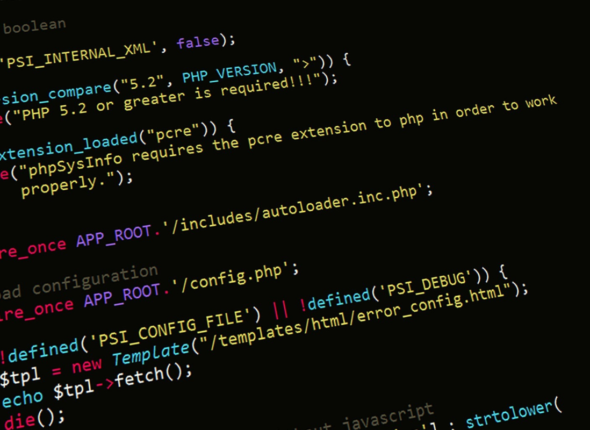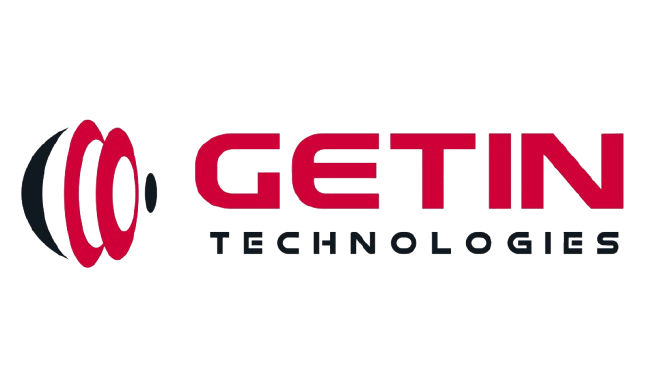World
Class Instructor
1:1 with
Industry Expert
400+
Global Hiring
55%
Avg. Salary Hike
- Overview
- Course Details
- Syllabus
- FAQ
Looking for the best Java FullStack Training in Virudhunagar? Getin Technologies offers expert-led training covering Java, Spring Boot, Hibernate, ReactJS, Angular, HTML, CSS, JavaScript, and MySQL. Our hands-on course helps you build real-world applications with front-end and back-end development expertise. Learn to develop dynamic web applications, integrate databases, and deploy projects efficiently. Ideal for students, freshers, and professionals, this training prepares you for high-demand Java FullStack Developer roles. Get practical experience with live projects and industry-relevant skills.
Our Highlights
- Industry-Expert Trainers
- Comprehensive Curriculum
- 100% Practical Training
- Placement Assistance
- Flexible Learning Options
- Affordable Fees with Certification
- Career-Focused Training
- Personalized Mentorship
What you will Learn?
- Core Java & Advanced Java – Master OOP concepts, collections, multithreading, exception handling, and JDBC for robust back-end development.
- Spring Boot & Hibernate – Learn to build scalable, secure, and high-performance web applications using Spring Boot, REST APIs, and Hibernate ORM.
- Front-End Technologies – Develop interactive user interfaces with HTML, CSS, JavaScript, ReactJS, and Angular for a complete full-stack experience.
- Database Management – Gain expertise in MySQL, PostgreSQL, and MongoDB for efficient data storage and retrieval.
- Project Deployment & Version Control – Learn Git, GitHub, and cloud deployment techniques to manage and deploy applications professionally.
Reasons to do Java Full Stack Course

High Demand

Salary

Best for Beginners
Java Full Stack Training Module 1
HTML + CSS + JavaScript + Java + J2EE + SQL
Total Course Duration: 90 Days
Java FullStack Training Module 2
HTML + CSS + JavaScript + ReactJS + Java + J2EE + SQL + SpringBoot
Total Course Duration: 120 Days
Java FullStack Training Module 3
HTML + CSS + JavaScript + ReactJS + Java + J2EE + SQL + SpringBoot + Hibernate + API + AWS
Total Course Duration: 125 Days
Java Full Stack Course Overview
Getin Technologies offers a comprehensive Java FullStack Training in Virudhunagar, designed to equip you with the skills needed to develop end-to-end web applications. This course covers Core Java, Advanced Java, Spring Boot, Hibernate, ReactJS, Angular, HTML, CSS, JavaScript, MySQL, and MongoDB.
In our Java FullStack Training in Virudhunagar, you have hands-on experience in backend development, front-end UI development, database management, RESTful API integration, and project deployment. With industry–specific training and real–world projects, the course gets you ready for high-demand Full Stack Developer roles.
Future Scope for Java FullStack Developer
- High Demand Across Industries – Java Full Stack Developers are in demand across IT, finance, healthcare, e-commerce, and startups, ensuring strong career opportunities.
- Lucrative Salary Packages – Companies offer competitive salaries for skilled full-stack developers due to their expertise in both frontend and backend development.
- Opportunities in Emerging Technologies – Java Full Stack skills integrate well with AI, Cloud Computing, and DevOps, expanding career growth in modern tech fields.
- Freelancing & Entrepreneurship – Build and deploy your own applications or work as a freelancer, providing full-stack development services worldwide.
- Global Career Prospects – Java is a widely used programming language, making full-stack developers highly employable in international markets.
What will you Learn ?







Module 1 - HTML (10 Days)
HTML Basics
- Introduction
- What is difference between HTML and HTML5?
- HTML Overview
- DOCTYPE
- HTML Tag Vs Element
- HTML Attributes
Basic Formatting Tags
- Basic HTML Tags
- Basic Formatting Tags
HTML Grouping Using Div and Span
- Div Tag
- Span Tag
HTML Lists
- Unordered List
- Ordered List
- Definition List
Images
- Image and Image Mapping
Tables
- <table>
- <tr>, <th>
- <caption>
- <thead>, <tfoot> , <tbody>
- <colgroup>
Frames
- Iframes
- Attributes Using Iframe as the Target
Forms
- HTML Form Elements
- HTML Input Types
- HTML Input Attributes
HTML Media
- HTML Audio and HTML Video
Module 2 - CSS (10 Days)
- What is CSS?
- CSS Inclusion
- Selectors
- Colors
- Background
- Border
- Margin
- Padding
- Height
- Width
- Sizes
- Box-Model
- CSS Fonts
- CSS Text
- CSS links
- CSS Tables
- Display, Position
- Margin property
- Padding property
- CSS Lists Styles
- CSS Cursors
- CSS Overflow
- CSS Position
- Pseudo Classes
- Pseudo Elements
- Animation
- Transform
- Transition
- Media Query
- Box Sizing Flex and Grid
Module 3 - JavaScript (10 Days)
- Introduction
- Variable Declaration
- Arithmetic Operations
- Array
- Array Methods
- String
- String Method
- Math Module
- Condition Statements
- Loops
- Set, Map
- Events
- Module
- Oops
- Asynchronous
- Promise
- Async, Await
- FetchApi
- JavaScript Function
- Function Closure
- Regular Expression
- Error Handling DOM
- Event Listener
- Date Methods
- Object
Module 4 - ReactJs (15 Days)
- Introduction
- Features and Advantages of React
- Environment & Project Setup
- React JSX
- React State
- React Props
- Component Lifecycle Hooks
- Keys
- Redux
- Roung
Module 5 - Java (30 Days)
Module 1
- What is Java?
- Features of java
- Components of Java
- Usages of java
- Class, Object and Methods
- Standard Notation
- Identifiers
- Installation of Java and Eclipse IDE
Module 2
- Coding Standards and Naming Standards
- Introduction to Packages
- Why packages?
- Same Package and Different Package
- Import Statement
- Advantage of package
- Data Types
- Primitive
- non-primitive
- Type conversion
- Implicit
- Explicit
Module 3
- What is scanner
- Scanner methods
- Types of Variables
- Local
- Instance/Global
- Static
- Final
- Methods
- Without argument
- With argument
- Without return type
- With return type
- What is Constructor
- How to create a constructor?
- Usage of constructor
- Types of constructors
- Constructor changing
- This keyword
Module 4
- Operators
- Arithmetic operator
- Conditional operator
- Logical operator
- Ternary
- Compound Operator
- Control Statements
- If
- If else / nested if
- Else if
- Switch case
- Loop
- For
- Nested for
- While
- Do while
- Enhanced for
- Jump Statements
- Break
- Continue
Module 5
- Object Oriented Programming
- Inheritance
- What is Inheritance
- Types of Inheritance
- Super keyword
- Upcasting and Downcasting
- Polymorphism
- Compile Time Polymorphism
- Runtime Polymorphism
- Method Shadowing
- Variable Shadowing
- Abstraction
- Types of Abstraction
- Interface
- Static keyword and default method usage in interface
- Encapsulation
- Getters and Setters
Module 6
- Access modifier
- Private
- Default
- Protected
- Public
- Non access modifier
- Abstract
- Static
- Final
- String
- String Properties
- String Methods
- String Buffer class
- StringBuilder class
- What is Array
- Types of Arrays
- Single dimensional Array
- Array of Objects
- Arrays Class and it’s Methods
- Nested Class and Nested Interface
- Anonymous Inner Class
- Functional Interface
- Lambda Expression
Module 7
- Wrapper Class
- Autoboxing
- Unboxing
- Collection API
- List
- ArrayList, LinkedList, Vector, Stack
- Set
- HashSet, LinkedHashSet, TreeSet
- Map
- HashMap, LinkedHashMap, TreeMap
- Crud Operation
- Stream API
- How to create a stream
- Stream Methods
- Map, Filter, Reduce…etc
- Generics
- What is Generics?
- Advantages of Generics
- Generic Type
Module 8
- Exception
- What is Exception?
- Compile time and Runtime exception
- Exception Handling
- Try, Catch, Throw and Throws keyword
- User defined Exception
- File Handling
- File class and it’s methods
- Writing data into the file
- Reading data from the file
Module 6 - J2EE (15 Days)
J2EE Introduction
- What is a web application?
- What is server and Tomcat web server?
- Setting up the IDE environment with Tomcat
- Assembling & deploying
Module 2
- Servlet
- Servlet api, classes and it’s interfaces
- Request and Response Object
- Servlet Config and Servlet Context
- Init parameters and Context parameters
- RequestDispatcher & SendRedirect
- DoGet, DoPost and Service methods
- Servlet lifecycle and load-on-startup
- Xml file and Annotation
Module 3
- HttpStatusCodes & SendError method
- RequestAttribute, SessionAttribute, ContextAttribute
- Session Management
- Filters API
- Filter Chain
Module 4
- JDBC
- JDBC Drivers
- Creating a connection
- Statement
- Prepared Statement
- Callable Statement
- ExecuteQuery, ExecuteUpdate and Execute
- ResultSet
Module 5
- JSP
- Life cycle
- JSP Tags
- Scriptlet, Expression, Declaration tags
- Expression Language
- JSP Directives
- JSP @page, @include and @taglib
- JSTL tags
- JSP implicit objects
- JSP use bean
Module 7 - SQL (10 Days)
Introduction
- The Relational Model
Understanding Basic SQL Syntax
- Basic SQL Commands – SELECT
- Basic SQL Commands – INSERT
- Basic SQL Commands – UPDATE
- Basic SQL Commands – DELETE
- Querying Data with the SELECT Statement
- The SELECT List
- SELECT List Wildcard (*)
- The FROM Clause
- How to Constrain the Result Set
- DISTINCT and NOT DISTINCT
Filtering results with Where Clause
- WHERE Clause
- Boolean Operators
- The AND Keyword
- The OR Keyword
- Other Boolean Operators BETWEEN, LIKE, IN, IS, IS NOT
Shaping Results with ORDER BY and GROUP BY
- ORDER BY
- Set Functions
- Set Function And Qualifiers
- GROUP BY
- HAVING clause
Matching Different Data Tables With JOINS
- CROSS JOIN
- INNER JOIN
- OUTER JOINs
- LEFT OUTER JOIN
- RIGHT OUTER JOIN
- FULL OUTER JOIN
- SELF JOIN
Creating Database Table Stamp
- CREATE DATABASE
- CREATE TABLE
- NULL Values
- PRIMARY KEY
- CONSTRAINT
- ALTER TABLE
- DROP TABLE
Module 8 - SpringBoot (10 Days)
- Introduction to Spring Boot
- Spring Tool Suite (STS) IDE Configuration
- Creating web application using spring boot
- Application properties file
- Model and View
- Model object
- Spring Boot Data JPA
- Spring Boot MVC
- Spring Boot Data Rest
Module 9 - Hibernate (5 Days)
- Introduction to Hibernate and its configuration.
- How to get data using Hibernate?
- Hibernate Mapping relations.
- Hibernate Caching
- Hibernate Query Languages.
- Hibernate uses in Project
- JPA ORM Implementation.
Module 10 - API (2 Days)
- Building RESTful APIs using Python
- Authentication and authorization
- API documentation
Module 11 - AWS (3 Days)
- Preparing your application for deployment
- Basics of containerization (Docker)
- Introduction to cloud services and deployment platforms (e.g., AWS)
Our Career Service

Job Assistance

Interview Based Training

Expertise and Knowledge

Interview Preparation

Resume Profile Building

Support and Guidance
What is Java FullStack Training, and why is it important?
Java FullStack Training covers front-end, back-end, and database management skills using Java, Spring Boot, ReactJS, Angular, and MySQL, making you a job-ready developer.
Will I get a certificate upon completing this course?
Yes! After completing the Java FullStack training in Virudhunagar successfully, you will be awarded a course completion certificate. to boost your career.
Who can enroll in Java FullStack Training at Getin Technologies?
Anyone interested in web development can join—ideal for students, freshers, IT professionals, and career switchers looking for high-paying job roles.
Does Java Full Stack training provide placement support?
Yes! Our Java FullStack training in Virudhunagar also offers job placement support, resume preparation, and interview training to get you employed.
What are the career opportunities after completing this course?
You can work as a FullStack Developer, Java Developer, Software Engineer, or Web Developer in top IT companies and startups.
Does the course include practical learning?
Yes! Our Java fullstack training in Virudhunagar includes real-world projects, hands-on coding exercises, and live application development for industry-ready skills.
How can I enroll in Java FullStack training in Virudhunagar?
Contact Getin Technologies via our website or visit our Virudhunagar center to register and start your journey in full-stack development!
Is the course available for online training?
Yes! We offer classroom and online Java FullStack training in Virudhunagar, so you can choose the learning mode that most suits your schedule.
- Java Full Stack Training Course
- Duration: 125 Days
- Level: Beginner
- Language: English
- Certification: Yes
Job Roles
- Java Developer
- Full Stack Developer
- DevOps Engineer
- Web Application Developer
- Software Engineer
Outcome of Java FullStack Training in Virudhunagar

Comprehensive Skill Set
Gain expertise in Java, Spring Boot, Hibernate, ReactJS, Angular, MySQL, and full-stack development to build dynamic web applications.

Industry Relevant Knowledge
Learn the latest full-stack development trends, tools, and frameworks aligned with industry standards to enhance employability and career growth.

Working on Real-Time Projects
Get hands-on experience by developing real-world applications, solving practical challenges, and working on live projects for professional readiness.

Problem-Solving Skills
Enhance your ability to debug, optimize code, and implement efficient solutions, ensuring smooth development processes and application performance.

Career Advancement Support
Receive resume-building guidance, interview preparation, and job placement assistance to secure high-paying Java Full Stack Developer roles.

Post-Training Support
Get continuous learning resources, mentorship, and technical assistance even after course completion to keep up with evolving technologies.
Who Should Join Our Java FullStack Training in Virudhunagar?
- Students & Freshers seeking a career in Java Full Stack Development
- Web Developers who would like to learn developing skills with Java-based technologies
- Java Developers looking for Front-End & Back-End expertise
- IT professionals looking to switch their career to Full Stack Development
Related Courses
PHP Training
PHP Training is designed to equip learners with the skills to develop dynamic web applications, covering syntax, database integration, server-side scripting, frameworks like Laravel for secure coding.
Dot Net Training
.NET Training equips learners to develop robust applications using the .NET framework, including C#, ASP.NET, MVC, and database integration, cloud services, and full-stack development techniques.
Java Fullstack Training
Java FullStack Training equips learners with skills in front-end, back-end, and database development using Java technologies, fostering expertise in frameworks like Spring, Hibernate.








